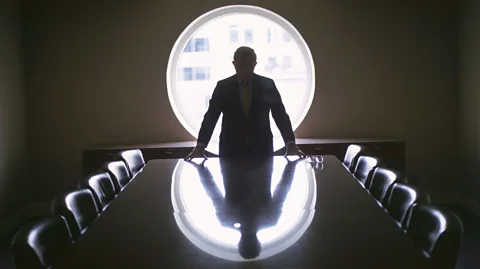What nobody tells you about becoming the boss
 Alamy
AlamyThe good, the bad and the unexpected of getting promoted to the top.
Long before Roman Stanek became founder and CEO of GoodData, the cloud-based software and data-analytics firm based in San Francisco, he was just a respected engineer.
After a few promotions at software companies, that engineer found himself in 1997 as CEO of the software company NetBeans. A far cry from engineering, Stanek suddenly had to develop an entirely new skillset, one as a manager and leader.
Things didn’t always go smoothly. When Sun Microsystems offered to buy the company in 1999, Stanek thought he could manage the acquisition largely in-house — until he learned the other side had a team of a hundred people working on it. There were arguments and days when Stanek thought the whole deal would fall apart. It was his trial by fire in upper management, and it was simply no fun.
“It was a painful process,” Stanek recalls. “It was the moment that transformed me from middle manager to upper management.”
If you’re heading to the top, you need to be prepared. Those who have done it say middle management does little to prep someone for the upper ranks, where suddenly every decision is more difficult and losses have far more at stake.
How then do you get ready for your role at the top?
Mastering the worst
First, get ready to handle all that’s bad at your company.
If you’re a good upper executive, you’ve delegated most of the day-to-day decisions. That means the only ones that come to you are the tough ones. They’ll bring you the monumental ones. The problems nobody wants to handle.
 Alamy
AlamySo handling the worst is the first skill you must master when reaching the top, says Linda A Hill, professor of business administration at Harvard Business School.
“People who are promoted to the top leadership positions are often surprised at how negative it can be,” Hill says. “The easy decisions, those will be made by the people below you. So that leaves you all the hard stuff.”
In upper management, ethical dilemmas are more complicated. Changes to the culture affect far more people than just the team you used to manage. Switch mid-stream and it will turn the entire company’s direction, a far riskier outcome than when you were just a middle manager.
What’s more, as a member of the top management team, you’ll be expected to be more enterprise minded. Back in middle management, good bosses put their team first. But now, Hill says, decisions must be made with input from other departments for the greater good of the company at large.
If that all doesn’t sound tough enough, making those decisions will actually become tougher, Hill cautions. At the top, you’re farther from the front lines, with less personal knowledge of the problems your company faces.
“Even if you’re a star, if you’re an excellent manager, you’ll need a healthy team of people you trust to run the business,” Hill says.
Finding friends
Once you find yourself running the office, it’s time to look for friends in the same situation, says Mark Fagan, managing partner of accounting firm Citrin Cooperman’s office in Connecticut in the US.
Fagan has audited several thousand companies in his 31-year career, watching many mid-level managers make it or burn out once they’re promoted to the top. Among the most common reasons they fail: trying to do it all without advice.
“CEOs need an inner circle. It may not be your in-house C-suite executives, because they may be negatively affected by the decisions you make,” Fagan says. “You may need to look outside your company for people in the same boat as you.”
It’s your call
At the end of the day, final decisions rest with you — both the good ones and the bad ones.
 iStock
iStockIt’s that level of ultimate responsibility that is the toughest part to master about being a CEO, says Autumn Manning, who runs the employee engagement firm YouEarnedIt. Sometimes it’s up to you to make the unpopular decision, the one that’s going to disappoint people who you’ve worked with for years.
For Manning, she has figured out decisions she’s confident at making and other ones where she’s going to need help. She’s better at product-related decisions, she says, while for ones that involve cash flow, Manning pulls in her chief operating officer.
“At the end of the day, you have the ultimate say as CEO,” Manning says. “You have to be ready to make a decision. You have to be able to say it’s this or it’s that. If you don’t, everything might grind to a halt waiting for you.”
Learning the ropes
During the acquisition of NetBeans, Stanek learned a lesson that still affects the way he makes decisions 17 years later. The entire deal kept getting held up over small wordings in the contract, phrases that sparked chains of emails and spats between the two sides.
Stanek had hired his own acquisitions team, and finally he realised that the two sides, working in different offices, simply needed to get together to work things out. When they were finally in the same room, the deal went through.
“What I learned is that distance creates mistrust,” Stanek says. “People who never met were fighting over wording. They would have found a middle ground if they met.”
Now, Stanek makes a point of having those working on a project from a distance meet early on, making a personal connection that helps later if things go wrong.
“As a CEO, that was a good experience to go through, even though it was very painful,” Stanek says.
If you’re moving up to the top, that kind of trial might be waiting for you. But learn from it, figure out how to make the big decisions and you’ll find a comfortable home in the corner office.
